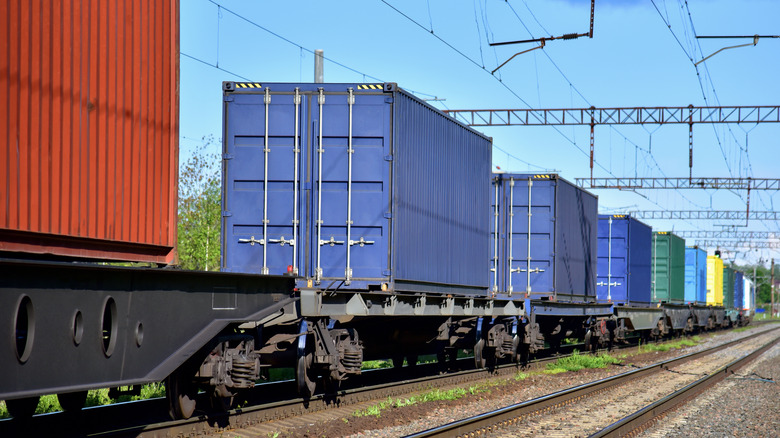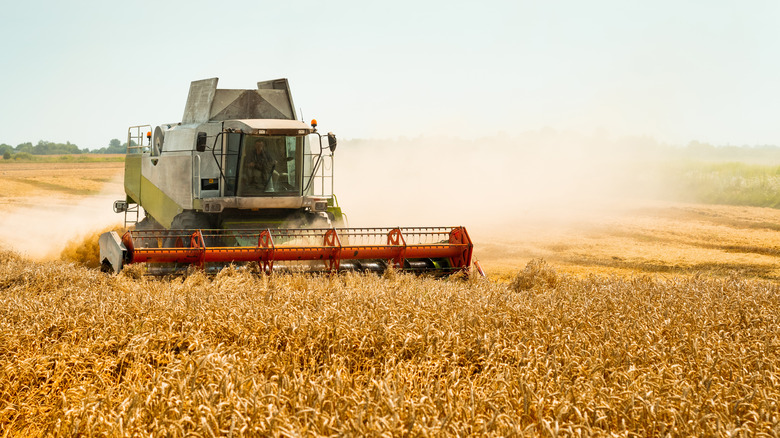What The Current Railroad Strike Could Mean For Food Prices
A possible upcoming strike by members of the nation's largest railroad worker unions has the potential to deepen the U.S.'s existing supply chain issues in the coming weeks. The ongoing union dispute, which involves 125,000 members of 12 different railroad labor unions, threatens to shut down over 7,000 trains — including passenger and cargo trains — if a deal isn't struck by the end of this week, according to CNBC.
Railroad workers, who have threatened to walk off the job en masse if a fair contract isn't reached, have cited poor working conditions, insufficient wage increases, and a lack of unpaid sick time as the primary reasons for the potential strike. In the past, workers attempting to seek medical care or attend to family emergencies have been faced with the threat of termination or pay penalties, the Wall Street Journal reports.
"All we're asking is folks to be able to go to routine doctor's visits without pay, but they have refused to accept our proposals," said Dennis Pierce, president of the Brotherhood of Locomotive Engineers and Trainmen (BLET), one of the labor unions at the center of the negotiations. "We have guys who were punished for taking time off for a heart attack and covid. It's inhumane."
Railroad workers are demanding fairer paid leave policies
Although nine of the 12 major railroad unions have reached agreements with the freight carriers, some of the largest unions representing around 50% of all U.S. railroad workers, including BLET, are still in negotiations (via CNBC). If the strike moves forward on September 16, it could lead to a full shutdown of the U.S. rail system, which accounts for 40% of the country's long-distance trade.
As the potential strike looms larger, the U.S. agricultural industry has braced for the profound industry-wide impacts of a railway shutdown. Amid record inflation and supply chain issues that have already driven food prices to record highs, a railroad shutdown at the start of peak harvest season could drive up grocery prices even further.
"A rail stoppage ... would hit right as the fall harvest accelerates in many parts of the United States. The economic damages across the food and agricultural supply chain would be swift and severe," said Mike Seyfert, president of The National Grain and Feed Association, earlier this week (via Food Business News).
A nationwide railway shutdown will cost an estimated $2 billion per day
Agricultural industry leaders have urged the Biden administration and congress to step in should the railroad unions be unable to reach an agreement by Friday. In a press briefing earlier this week, White House Press Secretary Karine Jean-Pierre said the administration was working on potential trade solutions. "We are working with other modes of transportation including shippers, truckers and air freight to see how they can step in and keep goods moving in case of this rail shutdown," Jean-Pierre said (via CNBC).
However, leaders across the agricultural, transportation, and consumer products industries warn that if the strike — which would cost the U.S. economy an estimated $2 billion dollars per day — isn't thwarted, it will have devastating economic consequences for both corporations and consumers.
In the words of Tom Madrecki, Vice President of supply chain and logistics for the Consumer Brands Association, "with product availability, inflation, and cost challenges continuing to affect American consumers, the supply chains cannot afford another crisis in the form of a freight rail strike."


